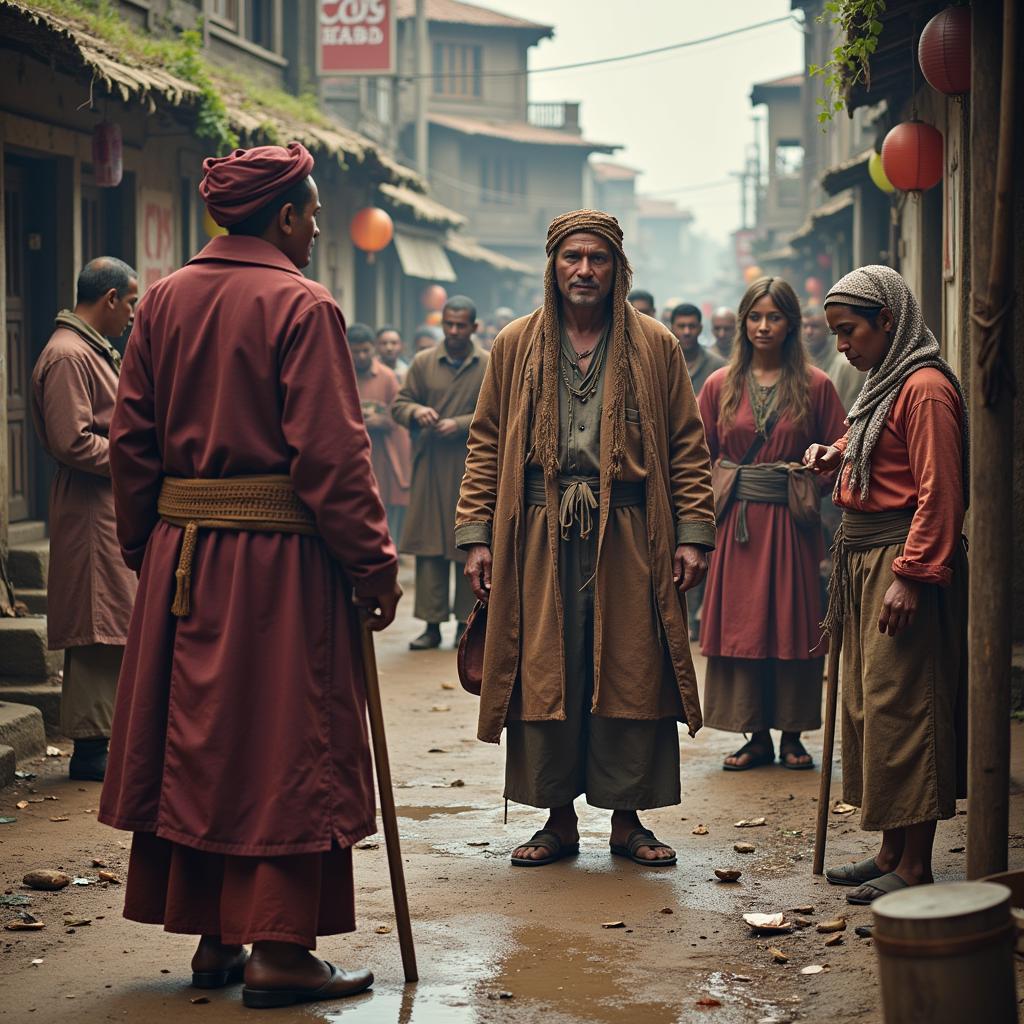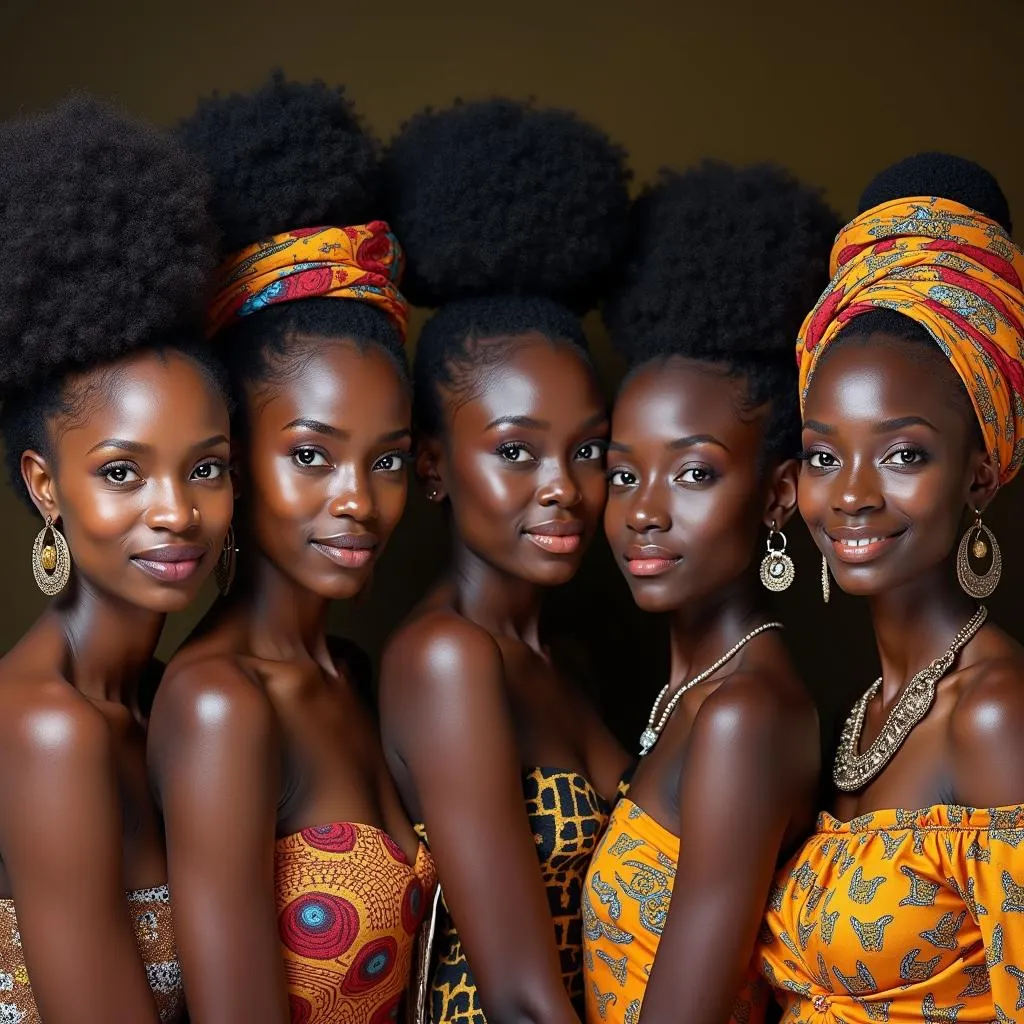Unveiling the Mysteries of African Exorcism
African Exorcism, a practice deeply rooted in tradition and spirituality, offers a fascinating glimpse into the diverse cultures and beliefs across the continent. It’s a complex subject, often shrouded in mystery and misunderstanding, and this article aims to explore its various forms, significance, and cultural context.
What is African Exorcism?
African exorcism is not a monolithic practice. It varies widely across different regions, ethnic groups, and spiritual traditions. . At its core, it involves the expulsion of malevolent spirits or entities believed to possess individuals, causing illness, misfortune, or psychological distress. Unlike Western depictions, African exorcism often emphasizes healing and restoration of balance, rather than solely focusing on the demonic.
The Role of Healers and Diviners in African Exorcism
Traditional healers and diviners play a crucial role in African exorcism. They are the intermediaries between the spiritual and physical realms, possessing the knowledge and skills to diagnose spiritual afflictions and perform the necessary rituals. These individuals often undergo extensive training and apprenticeships, learning about herbal remedies, spiritual practices, and the intricate workings of the spirit world.
Diverse Forms of African Exorcism
The methods employed in African exorcism are as diverse as the continent itself. Some involve elaborate ceremonies with drumming, dancing, and chanting, while others are more intimate, focusing on herbal remedies and spiritual cleansing. In some cultures, the individual being exorcised is placed in a trance-like state, allowing the healer to communicate with the possessing spirit. Other traditions involve physical acts, such as the application of specific herbs or the use of ritual objects.
Exorcism and Ancestral Beliefs
Ancestor veneration plays a significant role in many African cultures. In some cases, afflictions are attributed to angered ancestors, and exorcism rituals may involve appeasing them through offerings and prayers. This highlights the interconnectedness between the living and the dead in many African belief systems.
The Spiritual Significance of African Exorcism
African exorcism is more than just a ritual; it is a deeply spiritual practice that reflects the worldview of the community. It reinforces the belief in a spiritual realm that influences the physical world and emphasizes the importance of maintaining harmony between these two realms. The african evil spirit names and how they interact with humans provide deep insight into the cultural understanding of spirituality.
African Exorcism vs Western Perceptions
Western portrayals of exorcism often depict violent confrontations with demonic entities. However, African exorcism is often a more nuanced and holistic process that focuses on healing and restoring balance within the individual and the community. It is often intertwined with traditional medicine and healing practices.
African Exorcism in Modern Times
While some may view African exorcism as a relic of the past, it continues to be practiced across the continent. Even in urban areas, traditional healers often play a significant role in addressing spiritual and psychological issues. This enduring practice underscores the deep-seated belief in spiritual forces and the importance of traditional healing methods.
Conclusion
African exorcism is a complex and multifaceted practice deeply embedded in the cultural fabric of the continent. It provides a window into the spiritual beliefs, healing traditions, and cultural values of diverse African communities. By understanding its various forms and significance, we can gain a deeper appreciation for the rich tapestry of African culture and spirituality. And the vibrant expressions of african god of dance play a significant role in many rituals.
FAQ
- What is the purpose of African exorcism? To expel malevolent spirits and restore balance.
- Who performs African exorcism rituals? Traditional healers and diviners.
- Are all African exorcism rituals the same? No, they vary widely across different cultures.
- Is African exorcism still practiced today? Yes, it continues to be practiced in many parts of Africa.
- How does African exorcism differ from Western depictions? It often emphasizes healing and restoration rather than demonic confrontation.
- What are some common elements in African exorcism? Drumming, dancing, chanting, herbal remedies, and trance states.
- How is African exorcism connected to ancestral beliefs? In some cultures, afflictions are attributed to angered ancestors, and rituals may involve appeasing them.
 A photograph depicting a modern-day African exorcism scene
A photograph depicting a modern-day African exorcism scene
Need help? Contact us 24/7. Phone: +255768904061, Email: kaka.mag@gmail.com. Or visit us at Mbarali DC Mawindi, Kangaga, Tanzania.


